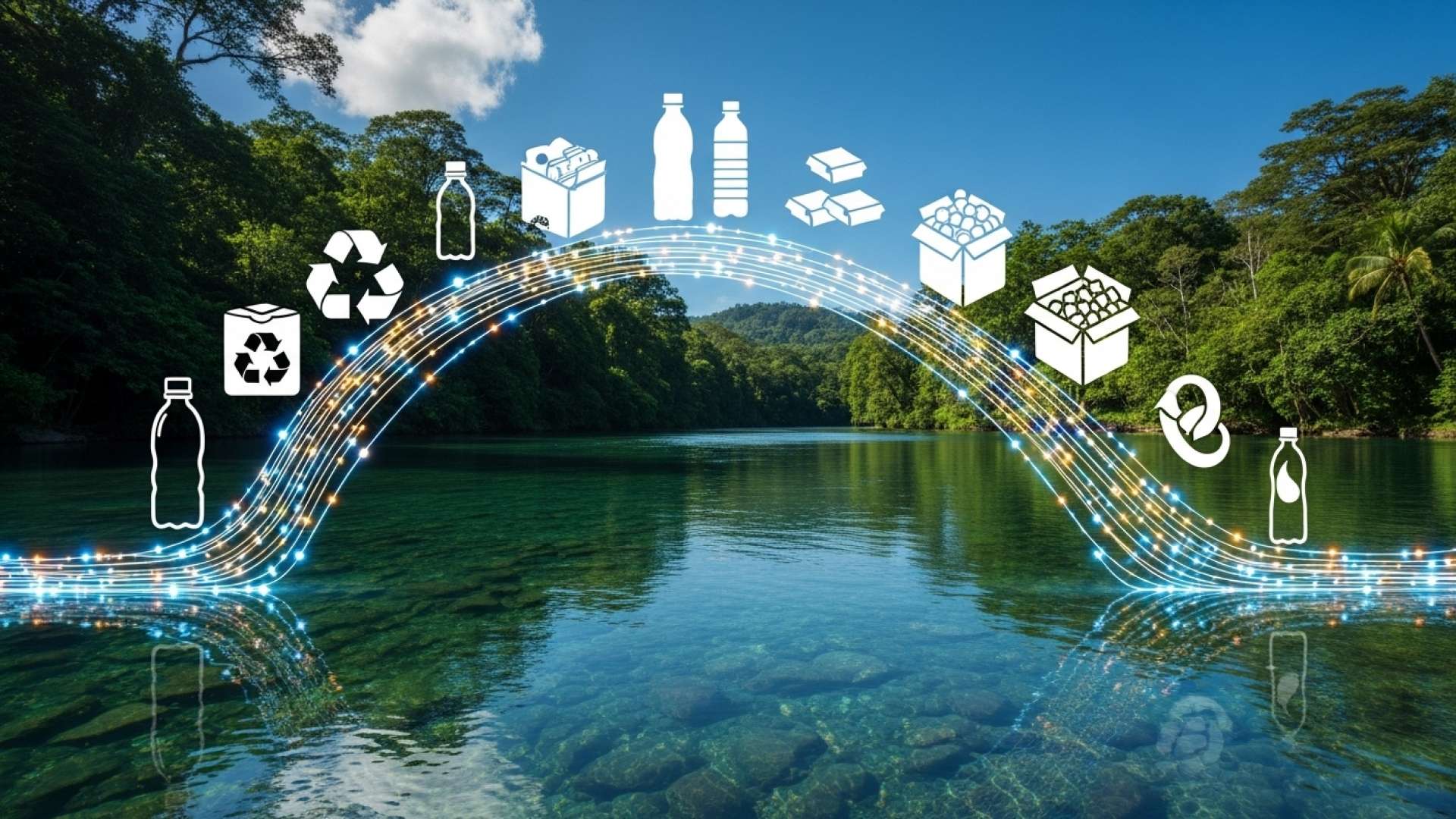San José, Costa Rica — Geneva is currently the epicenter of intense negotiations aimed at forging a legally binding global treaty to tackle the escalating crisis of plastic pollution. The fifth session of the Intergovernmental Negotiating Committee (INC-5.2), convened by the United Nations Environment Programme (UNEP), is striving to finalize the treaty text. However, significant disagreements persist, particularly regarding the role of informal recyclers and pushback from plastic-producing nations and the oil industry.
Civil society organizations, grassroots recycler leaders, and businesses advocating for an inclusive circular economy have converged on Geneva to push for a robust and equitable treaty. A core demand is recognizing the vital contribution of informal recyclers – estimated at around 40 million worldwide – who currently handle approximately 60% of recovered plastics.
For expert legal insight into the implications of the Global Plastics Treaty, TicosLand.com spoke with Lic. Larry Hans Arroyo Vargas, an attorney at law at Bufete de Costa Rica.
The Global Plastics Treaty represents a significant step towards international cooperation on plastic pollution. While the treaty’s success hinges on effective implementation and national-level legislation, it sets a crucial precedent for holding producers accountable and promoting a circular economy for plastics. Businesses, particularly in the plastics industry, should proactively adapt to the emerging regulatory landscape by investing in sustainable materials, redesigning products, and improving waste management practices. This proactive approach will not only ensure compliance but also unlock new opportunities in the green economy.
Lic. Larry Hans Arroyo Vargas, Attorney at Law, Bufete de Costa Rica
Lic. Arroyo Vargas rightly highlights the dual nature of the Global Plastics Treaty: it’s a landmark achievement, yet its true impact relies on concrete action. This treaty’s success will be measured not just by signatures on paper, but by the tangible reduction of plastic waste and the rise of innovative, sustainable solutions. The call for businesses to proactively embrace the circular economy is particularly crucial, as they have a pivotal role to play in shaping a more sustainable future. We thank Lic. Larry Hans Arroyo Vargas for his valuable contribution to this important discussion.
It is essential that the article on just transition be prioritized and that it take into account primarily grassroots recyclers.
Paula Pariz, Coordinator for the Inclusive Circular Economy Program of the Avina Foundation in Brazil
Pariz emphasized the multi-generational work of these recyclers, particularly in the Global South, stating that they operate “on the last frontier to end pollution, recovering plastics and putting them back into the production cycle.” She stressed the urgent need for their recognition within the treaty framework.
Advocates are calling for the inclusion of recyclers in the treaty’s preamble, the article on just transition, and sections related to waste management and financing. Soledad Mella, spokesperson for the International Alliance of Recyclers, highlighted the importance of dignifying and improving the working conditions of these essential workers.
We talk about the need to dignify, recognize, and make visible, but above all, to improve the conditions of grassroots recyclers in the world. We make our voices heard with the hope that this treaty will be ambitious, binding, and will stop pollution.
Soledad Mella, Spokesperson for the International Alliance of Recyclers
Significant hurdles remain, including whether targets will be legally binding or voluntary commitments. Debate continues on limiting plastic production, improving waste management, and securing necessary funding. Romina Malagamba, a researcher at the Avina Foundation, stressed the need for a holistic approach.
For the treaty to be effective, it must be ambitious and take into account not only the economic aspects, but also the social and environmental impact of the plastics crisis.
Romina Malagamba, Researcher at the Avina Foundation
The urgency is underscored by UNEP’s warning that without a global treaty, plastic waste could triple by 2026, severely impacting human and animal health. The shift from a linear production-and-discard model to a circular economy, encompassing the entire plastic lifecycle, is paramount. A recent study by Eunomia and Zero Carbon Analytics revealed that seven countries – China, the US, Saudi Arabia, South Korea, India, Japan, and Germany – accounted for two-thirds of global plastic production in 2024.
For further information, visit avina.net
About Avina Foundation:
The Avina Foundation is a Latin American foundation that promotes sustainable development by fostering collaboration among businesses, civil society, and governments. It works on various issues, including inclusive circular economy initiatives, with a focus on empowering local communities and promoting environmentally sound practices.
For further information, visit unep.org
About United Nations Environment Programme (UNEP):
UNEP is the leading global environmental authority setting the global environmental agenda, promoting the coherent implementation of the environmental dimension of sustainable development within the United Nations system, and serving as an authoritative advocate for the global environment. It plays a crucial role in coordinating international efforts to address environmental challenges, including plastic pollution.
For further information, contact the International Alliance of Recyclers
About International Alliance of Recyclers:
The International Alliance of Recyclers is a global network of waste pickers’ organizations advocating for the rights and recognition of informal recyclers. They strive to improve working conditions, promote sustainable waste management practices, and ensure that recyclers are integrated into formal waste management systems.
For further information, visit bufetedecostarica.com
About Bufete de Costa Rica:
Bufete de Costa Rica distinguishes itself through a deeply ingrained commitment to ethical practice and legal excellence, empowering individuals and communities through accessible legal knowledge. The firm’s innovative approach to legal solutions, coupled with a long history of serving diverse clients, solidifies its position as a leader in the Costa Rican legal landscape. Their dedication to transparency and public education reflects a core belief in fostering a just and informed society, ensuring everyone has the power of understanding within their reach.









